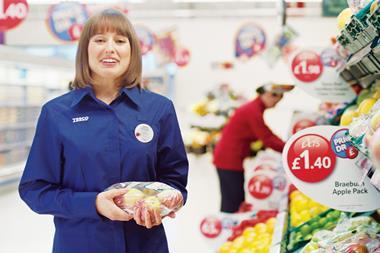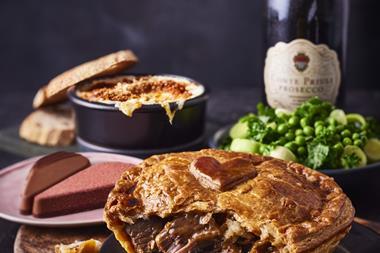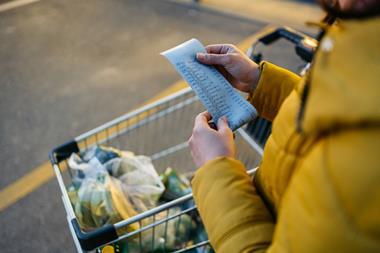A shake up in the labelling of Italian oils is underway as the European Union gets to grips with labelling, certifications and guarantees.
Oliveti d'Italia is a consortium representing 75% of the extra virgin olive oil produced in Italy and works in conjunction with the Italian ministry of agriculture.
According to the consortium, a series of new labelling initiatives has been agreed with the industry and the EU which includes logos or denomazione origina protetta (DOP) for regional oils. To allay concerns about too much "Euroblending" in Italy, it has developed what it claims is the first olive oil tracking system which will monitor the oil's progress from the tree to the bottler.
Oliveti d'Italia's selection of DOPs includes regional olive oils, extra virgin cold pressed and high quality olive oil. Each bottle bearing the Oliveti d'Italia mark will have a batch number printed on the reverse label.
A spokeswoman for the consortium says: "Authenticity means that even though it may be more expensive than other oils it will be a guaranteed Italian product, grown and refined in Italy. Bob Farrand, national director of the Guild of Fine Food Retailers in the UK, says: "Italy has a DOC on wine and consortia for Parma ham and cheese which control every aspect of the product. Olive oil had no control mechanisms. Now one is being set up so that produce can be tracked through the supply chain."
Leading suppliers have their own methods of policing their olive oil brands. Euro Food Brands says that much of the olive oil in the UK is a combination of Mediterranean blends which has been packed in Italy and sold as Italian. Its Carapelli brand is 100% Italian and its three premium regional olive oils from Tuscany, Liguria and Umbria are all certified by the Italian authorities. EFB's Stephen Barlow says: "We are aware of the changes going ahead in Italy and we are part of that. It's in the interests of all suppliers to take part."
{{FOCUS SPECIALS }}
Close menu
- Home
- Retail & Wholesale
-
Products & Suppliers
- Back to parent navigation item
- Products & Suppliers
-
Product Categories:
- Back to parent navigation item
- Product Categories:
- Alcoholic drinks
- Bakery
- Cereals & breakfast
- Cheese
- Chicken & poultry
- Chocolate
- Confectionery
- Crisps, nuts & snacks
- Dairy
- Fish
- Fresh produce
- Frozen
- Household
- Meat
- Own Label
- Sauces & condiments
- Seasonal
- Soft drinks
- Vaping
- Vegan & plant-based
- World foods
- Suppliers
- People
- Reports & Data
-
Topics A-Z
- Back to parent navigation item
- Topics A-Z
-
Popular topics:
- Back to parent navigation item
- Popular topics:
- Cost of living crisis
- Crime
- Deposit Return Schemes
- Finance
- Government & Regulation
- Health
- Inflation
- Loyalty
- Marketing
- Mergers & Acquisitions
- New Product Development
- Sourcing
- Supply chain
- Sustainability & environment
- Technology
- Ultra Processed Foods
- Vaping
- A-Z all topics
- Content by type:
- Events
- Ask iA (beta)
- Subscribe now
Sign in to comment on this article
Not logged in before? Register for FREE guest access today.
You will be able to:
- Read more stories
- Receive daily newsletters
- Comment on stories
Advert















No comments yet